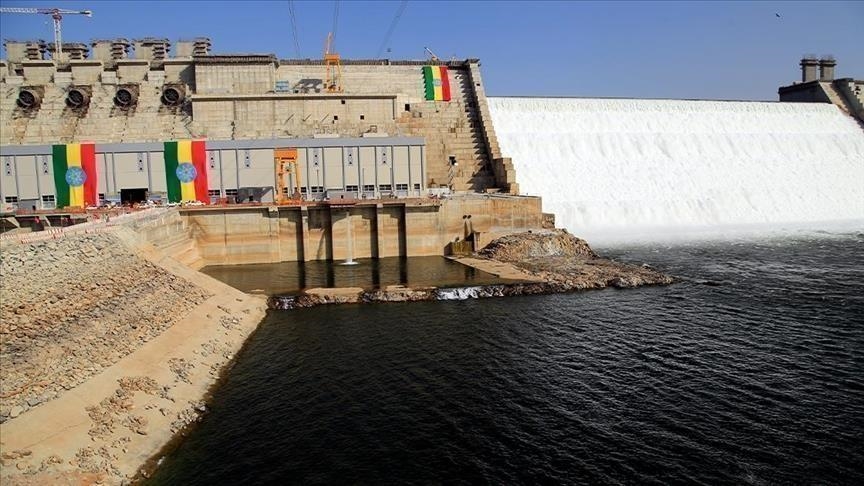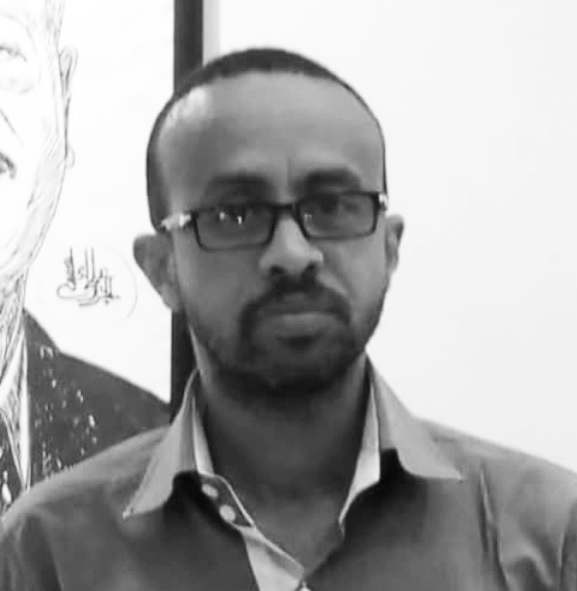
Grand Ethiopian Renaissance Dam`` Files Not Subject to Postponement
Khaled Massa
Despite the short transitional period Sudan experienced and the numerous challenges it faced, political observers cannot overlook the significant breakthrough that occurred in files and issues that had become increasingly complex due to the thoughtful approach of the ruling regimes mindset, which lasted for nearly three decades. This mindset had led Sudan into a series of tunnels that were difficult to exit without incurring costs, borne by the Sudanese people, delaying the countrys progress compared to other nations.
During those decades, Sudan remained in a state of war with the international community, whether with or without reason. This situation severed ties with neighboring countries, completely isolating Sudan from all platforms of international organizations. Sudans name was added to the list of countries supporting terrorism, subjecting it to an economic blockade that hindered progress and development.
Sudan took steps during the transitional period to address issues that were previously challenging to discuss in the countrys best interest. Sudan was removed from the blacklist of terrorism supporters, regained its voice and standing in international forums, relieved itself of the burden of debt, and entered negotiations on the "Grand Ethiopian Renaissance Dam" (GERD) with Ethiopia, the source, and Egypt, the downstream country. Sudan positioned itself as a crucial player in negotiations, emphasizing its national interest amid the political contradictions in the region.
Unusually, discussions on the GERD file were hosted in Khartoum during the discussions important phases. The negotiations reached a point where the Minister of Irrigation in the transitional government declared that an agreement between the concerned countries had reached a 95% consensus, a natural outcome of the policies during peaceful times.
The war in Sudan erupted in April, and it is impossible to rule out the possibility of the "Grand Ethiopian Renaissance Dam" becoming entangled in the conflict. Regional stances on this war have continuously probed the GERD file whenever they look at the unfolding developments in Sudan.
News of the resumption of GERD negotiations between Sudan, Egypt, and Ethiopia emerged amid the war news, prompting questions about the priority of a file that war could not postpone. Accusations were exchanged, and indications of alignment with the warring parties, the army and the Rapid Support Forces, surfaced.
Ethiopia, through the African Union, did not hold back its statements, and its Prime Ministers remarks were unsettling to the Sudanese government, almost considered a declaration of war. Egypt, under President Sisi, understands that the GERD file is not just an "electoral" matter but a file that affects the existence and security of the Egyptian state.
The time for war has come, and Ethiopia believes it is not obligated to abandon its firm stance and proceed with filling the dam. Ethiopia declared that the construction of the dam was 90% complete while the Sudanese government delegation traveled to the latest negotiation session with only its body, leaving its thoughts in Port Sudan, the governments backup headquarters. Naturally, the negotiation round failed.
The discussion is no longer about whether to build the dam or not; the reality is that the upstream country imposed it as a fait accompli, proceeding with the construction. Completing the dam-filling stages and filling the dam lake during the fourth, fifth, and possibly sixth stages became certain. The chief Ethiopian negotiator stated that his country does not need permission from anyone to complete the dam filling. Negotiating technical and legal aspects became a burden for Egypt, the downstream country, as Sudan was preoccupied with its months-long war.
At present, the Sudanese side may not see discussions on this file as a priority amidst the turmoil. The danger lies in the impact of war on the GERD file. For Egypt and Sudan, the importance comes in discussing technical aspects, defining "dry periods," the volume of water Ethiopia intends to withhold in the dam lake during the fourth and fifth stages, and the legal aspects governing the rights of each country related to the file.
In Egypt, considering war is not far from this file, and whenever the GERD file is opened, the Egyptian negotiating mind recalls the late President Anwar Sadats phrase upon signing the peace agreement with Israel: "The only thing that may force Egypt into war in the coming period is not politics but water."
The idea of "water poverty" that terrifies the world makes discussions on the GERD file, even in times of war, of utmost priority. All parties must enter these discussions with an open mind, preventing any party from exploiting the troubled circumstances in Sudan to impose its agenda. National interest requires maximizing the benefits of building the dam for a country suffering from energy shortages and decreasing arable land. Negotiation is the only way to safeguard the rights of all three parties in the Nile waters without letting this file become a cause for discord among these parties in a region already facing unrest.
The GERD file is a "technical" and "legal" matter, and the Sudanese negotiating delegation must approach it with this competency, keeping it away from political and warlike atmospheres. It should be noted that time plays a crucial role in discussions on this file, and any delay, due to war or otherwise, will allow Ethiopia to complete what remains of the dam body and proceed with the filling stages it has initiated. Negotiations, under these circumstances, usually do not lead to solutions.


